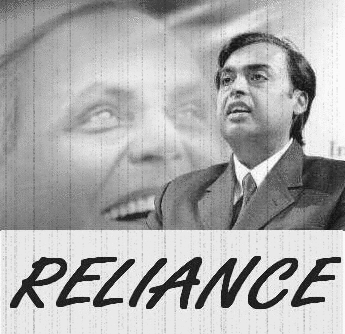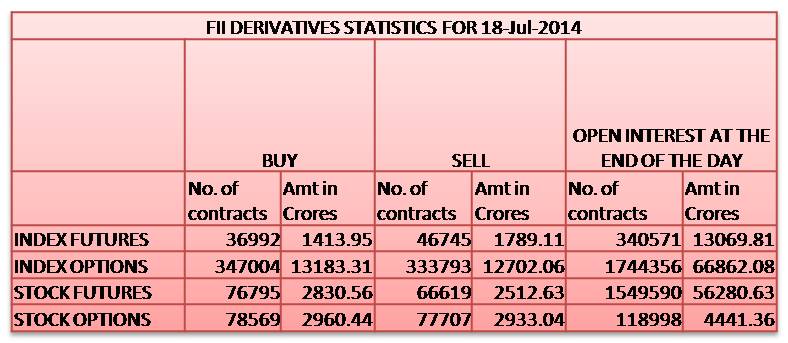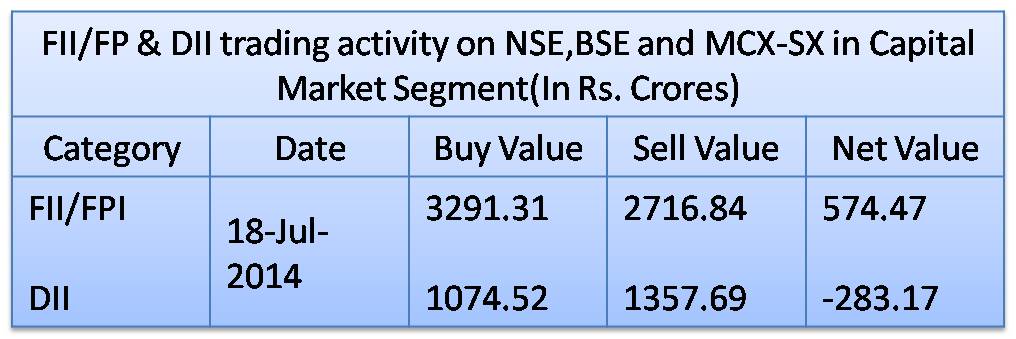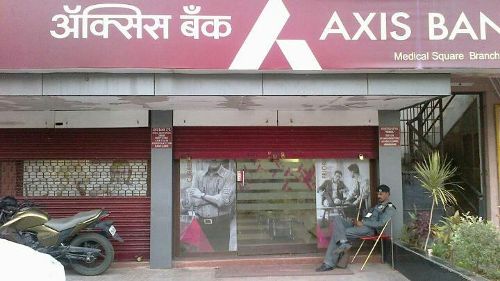India among biggest UK foreign investors
India has retained its position as a leading foreign investor into Britain, according to latest UK Trade and Industry (UKTI) figures released Sunday. India ranks seventh in the top overseas sources of investment with 74 projects during 2013-14 — a year with the highest number of projects since records began in the 1980s.
UKTI said the UK remains the most attractive destination in Europe for foreign business investment, winning almost 1,800 new projects in the past year. Trade minister Lord Ian Livingston said it had been an “exceptional year for foreign investment”, which had created 66,390 new jobs, the highest number since 2001.
“It shows that our strategy to attract investors to the UK by creating one of the most business-friendly environments in the world is the right one, and it is proof that foreign investors have confidence in the UK as the best place to do business,” Lord Livingston said. The US led the rush to invest in Britain with 501 projects in the UK, followed by Japan (116), France (110), Germany (102), Canada (89) and China (88).
Below India in the tally are Italy (70), Australia (69) and Ireland (55). John Cridland, the director-general of the CBI, said: “Investment in Britain is flying high. The UK is a very strong brand overseas, and this is an engine for providing the growth and jobs we need to drive forward a healthy and sustainable recovery.” UKTI says investment rose 8 percent to a record level of 975 billion pound and resulted in the creation of 66,390 new jobs, the highest total since 2001.
Europe provided 566 billion pounds of the total, the Americas 325 billion pound and Asia 72 billion pound. The rest came from Australasia and Africa. The 975 billion pound was the second-highest total of all the countries surveyed, behind the US (2,890 billion pound), and ahead of Hong Kong (845 billion pound), France (630 billion pound) and China (560 billion pound).
FM reiterates govt’s plan on financial inclusion
Finance Minister Arun Jaitely has reiterated the government’s plan to cut its stake in public sector banks that will help raise resources to recapitalise them over a period of time. The finance ministry is still preparing the roadmap on this front and plans to seek Cabinet nod on the same, after August 14.
“It’s not merely inclusion. All this would further bring in the unbanked money into the banking system,” said Jaitely adding that if the unbanked money, which is fairly large in amount, gets into the system, would be very useful for the economy.
He said the government is also coming up with the proposal of recapitalization of public sector banks over the next 4 years. While government equity will remain a majority, a lot of PSB equity can be off loaded in the open market for retail investors. This in turn through the government will go back to the banking system to enable banks to expand and thereby increase the whole process of financial inclusion.
Moreover, Banking Secretary GS Sandhu has denied cutting government stake in State Bank of India (SBI) immediately, from 58 percent to a 52-53 percent level, saying the ministry is yet to take a call on how much equity should be offloaded this fiscal.
RIL Q1 net up 13.7% to Rs 5957 cr, beats analyst estimates
 Reliance Industries ’ consolidated net profit for the June quarter rose 13.7 percent year-on-year to Rs 5957 crore
Reliance Industries ’ consolidated net profit for the June quarter rose 13.7 percent year-on-year to Rs 5957 crore
Consolidated revenues increased 7.2 percent y-o-y to Rs 1,07,905 crore, the company said in its release. Quarter-on-quarter, net profit was up 1.3 percent and revenues, 1.6 percent. Commenting on the results, Mukesh D. Ambani, Chairman and Managing Director, Reliance Industries Limited said: “RIL has delivered a record level of consolidated net profit, this quarter. This was achieved despite weak regional refining margins and a planned turnaround in our refinery.
The petrochemicals business performance highlights the strength of our portfolio-mix and end market diversity. Alongside, this robust financial performance, we also made significant progress on our growth commitments.
We have a great pipeline of new projects which will give Reliance an enduring competitive advantage. We are further expanding our retail business in existing markets while exploring newer markets and channels.
At Reliance, social responsibility and care for the environment is an integral part of our economic success.” In its release, RIL said the growth in revenue was driven primarily by higher prices of its products. Exports rose 16.8 percent to Rs 66,600 crore year-on-year.
Cost of raw materials rose 7.2 percent year-on-year, mainly due to an increase in crude prices. Operating profit rose 14.4 percent Y-o-Y, with the company attributing it to higher contribution from its refinery, petrochemicals, and oil & gas business. RIL’s gross refining margin for the quarter stood at USD 8.7/bbl agains USD 8.4/bbl last year and USD 9.3/bbl in the April quarter.
Among other highlights, profit before tax increased 16.8 percent to Rs 7729 crore and cash profit increased by 13.9 percent to Rs 8984 crore. As of June 30, Reliance had cash and cash equivalents of Rs 81559 crore on its books, and outstanding debt of Rs 1.35 lakh crore. The company’s standalone quarterly income rose 10 percent to Rs 96351 crore and net profit by 5.5 percent to Rs 5649 crore.
Coal India union says to oppose any stake sale
Unions representing workers at Coal India Ltd, the world’s largest coal miner, will oppose any move to sell a stake in the state-owned company as part of the new government’s plan to shore up its finances, a union leader said on Friday.
The government, which has a 90 percent stake in the company whose total value is about USD 40 billion, is considering the sale of a 10 percent stake, according to official sources. Prime Minister Narendra Modi’s administration is looking to raise a record USD 10.5 billion from asset sales this fiscal year ending March 31 to keep the deficit under control. “We will not allow the government to sell any stake and will hit the streets if needed,” said DD Ramanandan, vice president of the All India Coal Workers Federation, one of five unions representing workers at the company.
Union leaders representing more than 350,000 Coal India workers will meet on Aug. 31 in Pune to discuss their strategy. Last year unions successfully blocked the previous government’s move to sell a 10 percent stake of the company.
Workers fear divestment or any restructuring of the company would eventually lead to jobs cuts. The unions are also opposed to Power and Coal Minister Piyush Goyal’s order to Coal India to reduce the volume of coal sold through electronic auctions that fetch higher prices, Ramanandan said. Goyal said last month selling less via auction will help improve supplies to fuel-starved but debt-ridden power firms.
Ramanandan said it was a plan to help “the big industrialists get cheap coal”. A spokesman for the Coal and Power Ministry had no comment.
Jaitely hopes for lower rates, justifies defence FDI hike
 Finance Minister Arun Jaitley on Friday said that he hoped interest rates would be reduced should inflation ease, days after data showed consumer prices easing to their lowest since figures were first published in January 2012. “Interest rates have gone up. Hopefully, if inflation moderates, they will come down,” Jaitley told Parliament, he however, did not give specifics on the level of inflation.
Finance Minister Arun Jaitley on Friday said that he hoped interest rates would be reduced should inflation ease, days after data showed consumer prices easing to their lowest since figures were first published in January 2012. “Interest rates have gone up. Hopefully, if inflation moderates, they will come down,” Jaitley told Parliament, he however, did not give specifics on the level of inflation.
Data on Monday showed consumer prices led inflation eased to 7.31 percent in June, helped by a slowdown in food inflation and a favourable statistical base. The Reserve Bank of India uses retail prices as its main inflation gauge while setting its monetary policy. It will next review rates on August 5.
Rejecting criticism over the hike in FDI cap in defence sector to 49 percent, Jaitley today said the step was necessary for boosting domestic industry of a country which imports up to 70 percent of its military hardware. Justifying the decision to raise the cap from 26 percent, he said the country is dependent to a large extent on foreign sources for meeting its defence requirements and they can “stop supplies” during times of war. “We are importing 70 percent equipment from foreign sources.
The question is that those who oppose the idea of 49 percent FDI in defence sector, you can buy 100 percent equipment from foreign sources but oppose our own…I think the 49 percent (FDI limit) approach in is larger national interest,” Jaitley said replying to a Lok Sabha debate on Budget.
Jaitley praised the DRDO saying it was “doing quite a lot to meet the requirements of the armed forces but the Services need much more and that will come through domestic industry.” During the Budget debate Jaitley said he has earmarked Rs 50 crore for setting up de-addiction centres in Punjab. He said the government will set up special Rs 2,000 crore fund in NABARD for development of food parks.
Market this week……..
Markets This Week: Nifty gains 2.7%, Sensex rises 2.5%
Market This Week: BSE Power + 4.7%, BSE Realty + 4.1%
Market This Week: CNX PSU Bank + 6.3%, CNX Infra + 5.7%
Market This Week: BSE Cap Goods + 6.7%, BSE Metals + 6.6%
Nifty Gainers: IDFC + 10.3%,Axis Bank + 10%, Kotak Mah Bank + 9%, ICICI Bank + 9.1%,NMDC + 8.5%, L&T + 7.1%
Nifty Losers: HUL – 3%, Bajaj Auto – 2.5%, Infosys & GAIL – 2.3% Each
Mid-Cap Gainers: Tata Metaliks + 49%, Tata Sponge + 36%, Jaypee Infra 30% BF Utilities 28%, Crompton 22%
Mid-Cap Losers: NIIT Tech 19%, Zydus 10.4%, Indian Hotels 9.4%
Updated : 04.03pm / 18th July’14
Axisbank Rocked after crossed 1990………
Last Two days and Today too we had wrote AXISBANK Strong breakout @ 1990
Today we have Recommend Buy AXISBANK above 1990 Target 2010 stop-loss 1980
After crossed 1990………….. Rocked 2010!!!
Hot call clients Enjoyed every day………
Ukraine, Russia trade blame over Malaysian plane tragedy
Ukraine and Russia traded accusations after US intelligence officials said a surface-to-air missile hit a Malaysia Airlines passenger plane carrying 298 people on Thursday.
US Vice President Joe Biden said the plane crash was “not an accident,” adding that it was “blown out of the sky.” Officials were divided over the origin of the missile that hit the plane, which crashed over eastern Ukraine., retired US Gen. Barry McCaffrey said, “This was a major strike, a deliberate strike to get an aircraft at that altitude.” The Ukrainian government, the pro-Russia separatists fighting in the region and Russian President Vladimir Putin denied responsibility for downing the aircraft. On his Facebook page, Ukraine’s minister of internal affairs, Anton Gerashchenko, claimed that terrorists struck down the plane under Putin’s orders.
Putin said Ukraine bore responsibility for the downing of the plane, adding it would not have happened if Kiev had not resumed a military campaign against separatists. Malaysia Airlines said Ukrainian aviation authorities told the company they had lost contact with Flight MH17, a Boeing 777 en route from Amsterdam to Kuala Lumpur, about 30 kilometers (20 miles) from Tamak waypoint, which is 50 kilometers (30 miles) from the Russia-Ukraine border. “To bring down an airliner from 33,000 feet you need a good air defense weapon, not just a missile itself and also the radar.
That says Russian, and that says to me either a separatist element or the Russians themselves,” Retired Col. Ken Allard told CNBC. Ukraine also has weaponry capable of hitting the passenger plane, Doug Richardson, editor of IHS Jane’s Missiles & Rockets, said in a note. But he noted, “The crew of the Command Post vehicle (containing the data display and control system for the launcher) are likely to have a good idea of the local air activity.”








